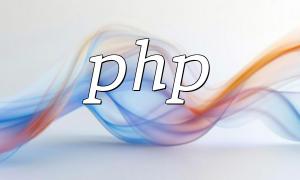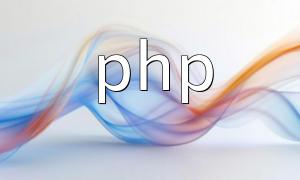Overview of Common PHP Functions
PHP offers a wide range of built-in functions to handle various programming tasks, allowing developers to efficiently work with strings, numbers, arrays, files, and date/time data. This article provides a systematic introduction to some of the most commonly used PHP functions and how to use them.
String Handling Functions
- strlen() Get the length of a string
- strtoupper() Convert a string to uppercase
- strtolower() Convert a string to lowercase
- explode() Split a string into an array
- implode() Convert an array into a string
Number Handling Functions
- abs() Get the absolute value of a number
- round() Round a number
- max() Return the maximum value from a set of numbers
- min() Return the minimum value from a set of numbers
- rand() Generate a random number
Array Handling Functions
- count() Get the number of elements in an array
- in_array() Check if a value exists in an array
- sort() Sort an array
- array_merge() Merge two or more arrays
- array_key_exists() Check if a key exists in an array
File Handling Functions
- fopen() Open a file and return a file handle
- fread() Read content from a file
- fwrite() Write content to a file
- fclose() Close a file
- file_exists() Check if a file exists
Date and Time Functions
- date() Get the current date and time
- strtotime() Convert a date/time string into a timestamp
- mktime() Convert a timestamp into a date/time string
Other Common Functions
- isset() Check if a variable is set
- empty() Check if a variable is empty
- is_numeric() Check if a variable is a number
- is_array() Check if a variable is an array
- exit() Immediately stop script execution
Conclusion
Mastering these common PHP functions helps developers efficiently handle strings, numbers, arrays, files, and date/time operations in everyday programming, improving both productivity and code quality.









